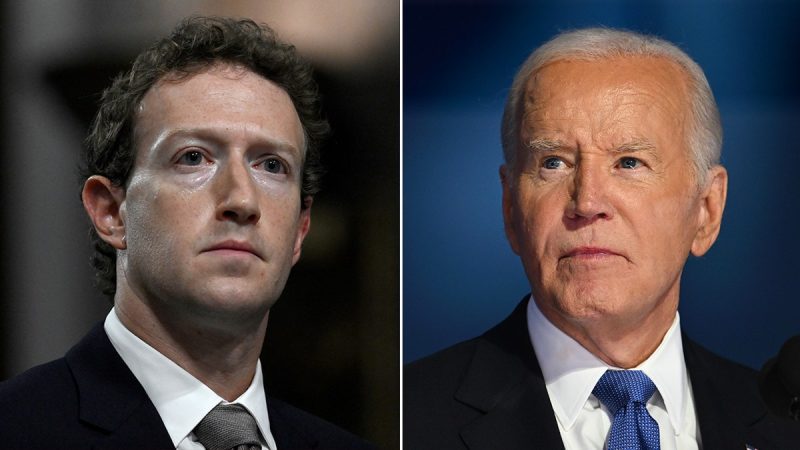Mark Zuckerberg, the CEO of Facebook, recently acknowledged that he gave way to pressure from the Biden administration to remove content they deemed as misinformation. A situation that is causing a discourse not just in the United States but on a global scale as well.
Zuckerberg’s confession comes as social media platforms continue to wrestle with the spread of misinformation on their platforms, particularly with respect to politics and health. Striking the right balance between free speech and information accuracy has become a proverbial tightrope walk for tech giants like Facebook.
In July, President Biden bluntly accused Facebook and other platforms of killing people, with regards to the misinformation about COVID-19 vaccines circulating on the platforms. This direct confrontation marked one of the most aggressive moves yet by the administration to combat the spread of inaccurate vaccine information online. Zuckerberg, feeling cornered, was forced to counteract against claims that Facebook is anti-vax, primarily by being tougher against unverified facts around vaccines.
Unfortunately, this acknowledgement by Zuckerberg further fuels the raging controversies around Big Tech’s supposed collusion with the government to control narratives and silence opposing views. Critics argue that this presents a potent danger to freedom of speech and cultivates a culture of censorship.
The issue indeed falls into a grey area ethically, as misinformation can be highly detrimental, especially when it comes to public health issues. The COVID-19 vaccine, being a prime example, where misinformation can have undeniably serious consequences. However, implementing a strong censorship on the basis of misinformation can equally be a slippery slope that paves the way for the stifling of more complex debates and discourses.
Despite this ongoing debate, Facebook under the lens of Mark Zuckerberg tries hard to defend its core values – connecting people and giving them a voice. Central to this belief is allowing people to engage in debates, share opinions, and express their views, even when others might not agree.
Facebook’s approach, Mark suggests, is not about taking a partisan side, but rather, to provide a platform where people can speak up and question authority. However, the pressure from the administration forced them to steer away from these original principles to some extent.
Evidence of discord arises not just among the general public, but within Facebook’s workforce too. Several employees have expressed discomfort over the platform’s changing policies and how it’s been executed. There is a newfound skepticism in the belief whether these takedowns will be indeed fair and impartial or will lean towards certain ideologies.
In an ever-changing and dynamic world, Zuckerberg’s admission brings the problem of tech censorship and information control under a larger spotlight. As the digital arena continues to grow, it’s clear that a careful balance must be found between safeguarding freedom of speech and barring the spread of potentially harmful misinformation. While this dilemma continues without an absolute solution, viewers remain hopeful for a clearer, more reconcilable path ahead, one that ensures both public safety and upholds democratic principles.






























